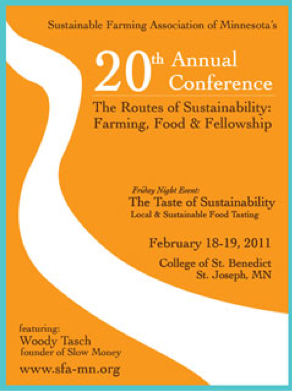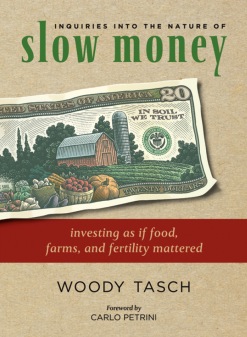Thoughts of revolution were in the air at the Sustainable Farming Association of Minnesota’s twentieth annual conference, The Routes of Sustainability: Food, Farming & Fellowship, held February 18 - 19 at the College of St. Benedict. SFA MN is a farmer-led organization that works to connect farmers with eaters across the state.
Slow Money
Categories
PARTNERS
Archives
- April 2016 (1)
- March 2016 (1)
- February 2016 (1)
- January 2016 (1)
- December 2015 (2)
- October 2015 (1)
- August 2015 (2)
- July 2015 (2)
- June 2015 (3)
- May 2015 (2)




